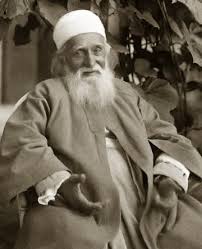
Who is Bahá’u’lláh?
Bahá’u’lláh (1817–1892) was the Prophet Founder of the Bahá’í Faith, a religion that emphasizes the unity of humanity, the harmony of science and religion, the equality of women and men and the importance of justice and service to others. He taught that all major world religions come from the same divine source and that their messages are meant to guide humanity toward greater peace and understanding. His writings encourage kindness, compassion, and the recognition of our shared spiritual heritage.
Who is the Báb?
The Báb (1819–1850) was the forerunner of Bahá’u’lláh, the founder of the Bahá’í Faith. His name means “the Gate,” as He prepared the way for a new era of spiritual and social transformation. The Báb called for the renewal of religion, the upliftment of humanity, and justice for all. Though His teachings challenged the religious and social norms of His time, inspiring thousands, He faced persecution and was ultimately executed. Bahá’ís honor Him as a Messenger of God who paved the way for Bahá’u’lláh’s teachings of unity and peace.
Who is ‘Abdu’l-Bahá?
‘Abdu’l-Bahá (1844–1921) was the son of Bahá’u’lláh, the founder of the Bahá’í Faith, and was appointed as its leader after His passing. He is known for His life of service, wisdom, and kindness, promoting peace, justice, and the unity of all people. ‘Abdu’l-Bahá traveled widely, sharing His father’s teachings and encouraging people of all backgrounds to work together for a better world. Bahá’ís view Him as a perfect example of how to live a life of love, humility, and selflessness.